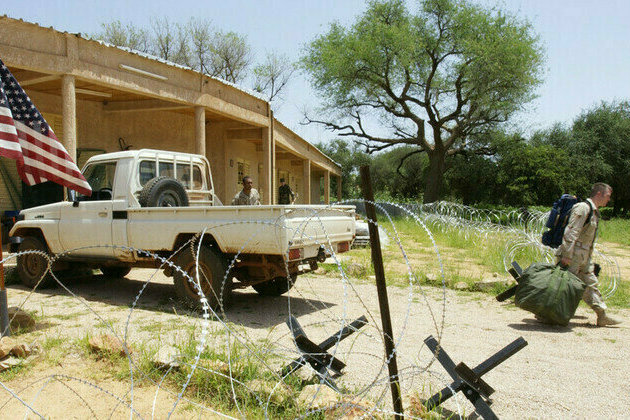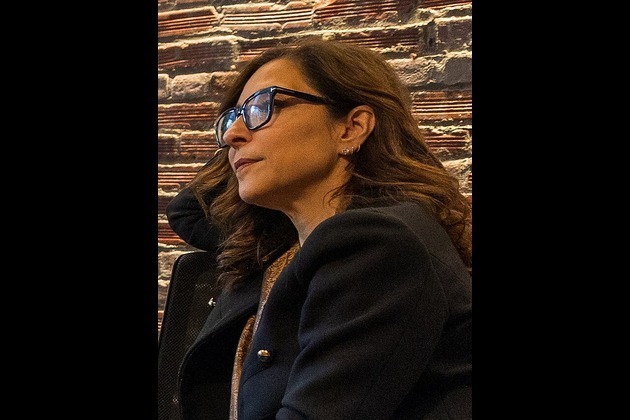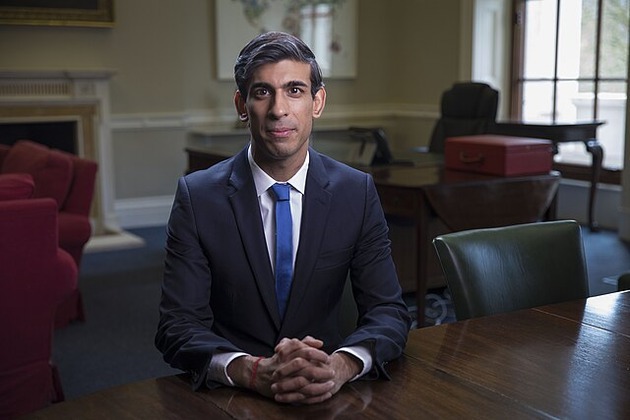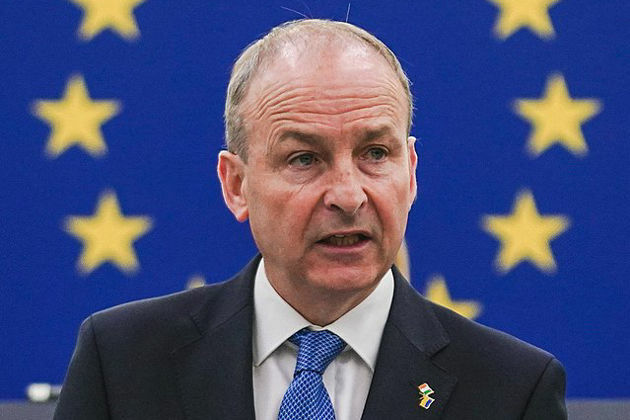Not wanted here: Why Africa is turning away from US military might
RT.com
11 Jul 2025, 18:06 GMT+10

For Africa, the retreat of a long-standing security partner opens a strategic vacuum to be filled by other global actors
A shift appears to be underway in US-Africa relations, judging by the remarks of Vice President J.D. Vance and AFRICOM Commander General Michael Langley. Speaking to new US naval graduates on May 23, Vance talked about re-evaluating the American military role around the world anddeclaredthat "The era of uncontested US dominance is over" and that open-ended military engagements "belong to the past."
Four days later General Langley, while attending an African defense chiefs' meeting in Gaborone, Botswana,suggestedthat the US Africa Command (AFRICOM) might be integrated into Central Command (CENTCOM). "If we're [AFRICOM] that important to (you), you need to communicate that and we'll see," Langley said, adding that the US is "reassessing" its military role in the continent. This sends a clear signal that Washington may dismantle or repurpose AFRICOM as part of broader cuts to US global military posture.
The statements, in line with President Donald Trump's 'America first' mantra, reflect Washington's growing impatience with costly foreign entanglements, while hinting at a fundamental transformation of how the US engages with Africa's complex security landscape.
Cold War legacy
Since its creation in 2008, AFRICOM has served as the centrepiece of US military strategy on the continent. Over nearly two decades, the command has expanded its reach and budget significantly, shaping security partnerships and playing a pivotal role in regional conflicts. Yet today, AFRICOM's future is uncertain, caught at the crossroads of shifting US priorities, rising African assertiveness, and intensifying competition from rival powers such as Russia and China.
Africa has long figured into the broader framework of US global military and political strategy. During the continent's era of anti-colonial struggle and liberation movements, Washington, obsessed with countering Soviet influence, viewed nearly every liberation movement through the narrow lens of Cold War anti-communism.
AFRICOM was established by President George W. Bush, who emphasized its importance by stating that it would "strengthen our security cooperation with Africa and create new opportunities to bolster the capabilities of our partners." AFRICOM was intended to centralize US military operations on the continent, replacing the fragmented structure inherited from the Cold War era, when Africa was divided among three different US military commands. Then-Secretary of Defense Robert Gates described the move as a long-overdue correction to an "outdated arrangement left over from the Cold War."
Between 2008 and 2025, the cost of sustaining AFRICOM and financing its activities is estimated to haverisenfrom around $50 million to between $275 million and $300 million. It is not a huge amount because the command borrows personnel and equipment from other US military commands, meaning the cost is accounted for anyway. This is likely to draw scrutiny from President Trump, who has made slashing federal spending a key priority. His administration has launched a dedicated initiative within the Office of Management and Budget - dubbed DOGE (Department of Government Efficiency) - to identify and eliminate what it considers excessive international and domestic expenditures. Trump's return to office in 2025 marked a clear strategic pivot: a retreat from costly overseas commitments in favor of a narrow, transactional approach to foreign policy.
The Sahel region: A case study in US withdrawal
The Sahel region illustrates the consequences of America's retrenchment in Africa. Once a central focus of US counterterrorism efforts, countries such as Mali, Niger, and Burkina Faso have witnessed the gradual reduction of American military presence amid growing local resistance. Coupled with political upheavals and anti-French sentiment, US forces have faced mounting pressure toleaveor scale back operations. The withdrawal has left a security vacuum that regional powers and international actors struggle to fill, fueling instability and humanitarian crises. This retreat highlights the limits of America's influence and the complexities of African geopolitics in an era of shifting alliances.
A stark example of the US pullback is Niger, where the military coup in 2023 prompted the expulsion of American forces and the shutdown of a$100-milliondrone base critical to regional surveillance and counterterrorism. The abrupt exit underscored the fragility of US military footholds amid shifting political dynamics.
Meanwhile, Russia has swiftly moved to fill this security vacuum, leveraging military cooperation, renewed political ties with the region and arms deals to become a preferred partner for several African states. Moscow's approach - often perceived as less conditional and more respectful of sovereignty - has resonated with governments disillusioned by Western interference and demands, accelerating realignment in Africa's security landscape.
"Russia does not come with lectures or conditions"
African nations approach foreign military partnerships with a mix of pragmatism, skepticism, and growing assertiveness. Many governments are wary of traditional Western powers, associating them with a legacy of colonialism, exploitative aid, and conditional alliances that undermine sovereignty. In contrast, Russia's more transactional and less intrusive engagement style appeals to some leaders seeking security support without political strings attached.
However, this trust is far from uniform - some African civil society groups and international observers often warn against swapping one form of dependency for another, emphasizing the need for genuine partnerships that respect African agency and prioritize long-term stability over geopolitical rivalry.
African countries' relative trust in Russia compared to the US or former European colonial powers stems from historical and ideological factors. During the Cold War, the Soviet Union supported numerous African liberation movements, often standing in opposition to Western-backed regimes and colonial interests. Unlike Western powers, Russia's approach has often emphasized non-intervention in internal politics, focusing primarily on military cooperation and economic deals without pressing for political reforms. This contrasts sharply with Western demands for governance changes as a precondition for aid or security support.
As Malian analyst Amina Traore noted, "Russia does not come with lectures or conditions; it offers partnership based on mutual respect and shared interests." Similarly, Senegalese former defense official Cheikh Diop remarked, "African countries want security partners who respect their sovereignty and do not drag them into endless conflicts or political battles." These sentiments underscore why Russia has gained ground as a preferred security ally, even as questions linger about the long-term implications of this pivot.
The possible disappearance or transformation of AFRICOM signals a shift in US military engagement across Africa. Whether integrated into other commands or scaled back significantly, this change reflects Washington's recalibration of its global military priorities amid domestic pressures and evolving international dynamics.
For Africa, the retreat of a long-standing security partner opens a strategic vacuum - one increasingly filled by Russia and other global actors eager to expand their influence. The shift challenges US policymakers to rethink their approach beyond military presence, emphasizing genuine partnerships based on respect, shared interests, and support for African-led security solutions. Ultimately, the future of US-Africa relations will depend on Washington's ability to adapt to a multipolar world where influence is no longer guaranteed by military might alone, but by diplomacy, economic engagement, and mutual respect.
(RT.com)
 Share
Share
 Tweet
Tweet
 Share
Share
 Flip
Flip
 Email
Email
Watch latest videos
Subscribe and Follow
Get a daily dose of Dublin News news through our daily email, its complimentary and keeps you fully up to date with world and business news as well.
News RELEASES
Publish news of your business, community or sports group, personnel appointments, major event and more by submitting a news release to Dublin News.
More InformationBusiness
SectionMusk’s X loses CEO Linda Yaccarino amid AI backlash, ad woes
BASTROP, Texas: In a surprising turn at Elon Musk's X platform, CEO Linda Yaccarino announced she is stepping down, just months after...
Ex-UK PM Sunak takes advisory role at Goldman Sachs
NEW YORK CITY, New York: Former British prime minister Rishi Sunak will return to Goldman Sachs in an advisory role, the Wall Street...
Gold ETF inflows hit 5-year high as tariffs drive safe-haven bets
LONDON, U.K.: Physically backed gold exchange-traded funds recorded their most significant semi-annual inflow since the first half...
PwC: Copper shortages may disrupt 32 percent of chip output by 2035
AMSTERDAM, Netherlands: Some 32 percent of global semiconductor production could face climate change-related copper supply disruptions...
U.S. stocks recover after Trump-tariffs-induced slump
NEW YORK, New York - U.S. stocks rebounded Tuesday with all the major indices gaining ground. Markets in the UK, Europe and Canada...
Stocks slide as Trump unveils 25% tariffs on Japan, S. Korea
NEW YORK CITY, New York: Financial markets kicked off the week on a cautious note as President Donald Trump rolled out a fresh round...
Europe
SectionIrish Rail faces 26,000-euro bill after graffiti spree by man
DUBLIN, Ireland: Irish Rail incurred over 26,000 euros in damages due to a series of graffiti incidents carried out by a 24-year-old...
Warsaw responds to migration pressure with new border controls
SLUBICE, Poland: Poland reinstated border controls with Germany and Lithuania on July 7, following Germany's earlier reintroduction...
Ireland’s PM ‘hopeful’ of EU-US tariff deal before July 9 deadline
DUBLIN, Ireland: Taoiseach Micheál Martin has expressed cautious optimism that the European Union and the United States can strike...
Fans perform WWII-era Fascist salute at Marko Perković’s mega concert
ZAGREB, Croatia: A massive concert by popular Croatian singer Marko Perković, known by his stage name Thompson, has drawn widespread...
Ireland’s citizens undeterred as Europe swelters in record heat
DUBLIN, Ireland: Despite extreme heat gripping much of mainland Europe, Irish holidaymakers are pressing ahead with their travel plans,...
Beijing hits back at EU with medical device import curbs
HONG KONG: China has fired back at the European Union in an escalating trade dispute by imposing new restrictions on medical device...













